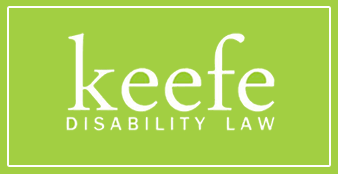If you have a Social Security disability hearing scheduled, you may have heard that a vocational expert (VE) will testify there. Many applicants are understandably confused and concerned by the role of this unknown person—especially since this is an expert provided by the government. The VE is there to provide information about different types of work you may be able to perform, but they are neither for nor against you. Here's what you need to know.
What Is a Vocational Expert
 A vocational expert is a professional witness who has expert, up-to-date knowledge of the labor market, current job trends, and the skills needed to perform a range of jobs. Their job is to provide sufficient information to help an Administrative Law Judge (ALJ) determine whether a Social Security Disability Insurance (SSDI) applicant can perform their job or another kind of work in light of their limitations. The VE's testimony can thus sway an ALJ in one direction or another when deciding whether to grant SSDI benefits.
A vocational expert is a professional witness who has expert, up-to-date knowledge of the labor market, current job trends, and the skills needed to perform a range of jobs. Their job is to provide sufficient information to help an Administrative Law Judge (ALJ) determine whether a Social Security Disability Insurance (SSDI) applicant can perform their job or another kind of work in light of their limitations. The VE's testimony can thus sway an ALJ in one direction or another when deciding whether to grant SSDI benefits.
What Does a VE Do During the Hearing
In general, the VE will testify about information such as:
- The skill level and physical and mental demands of specific jobs.
- Descriptions of work settings.
- Additional jobs that exist within occupations.
- Transferable skills analysis and SSA regulatory requirements for transferability of work skills.
More specifically, they will testify as to whether you can perform your job given your impairment. Before the hearing, the SSA will provide the VE with relevant parts of your case file, allowing them to examine your work history, experience, skills, and the level of exertion needed to perform your job or similar ones. During the hearing, the VE may listen to your testimony about your job, and how your functional limitations impact your ability to work.
What Might the VE Testify About
Once the VE has all the information they need, they'll give their opinion on the skills and exertion level required for your job, and whether you can still perform it given your limitations. If the VE believes that your impairment doesn't prevent you from continuing to work in your current position, the ALJ is highly unlikely to grant your request for disability benefits.
If the VE believes that you can't perform your current job, the ALJ will pose a series of questions to identify hypothetical jobs that a person with your experience, education, skills, functional limitations, and age can perform. For example, if you have a disabling back injury, the judge may ask a hypothetical such as:
"What jobs, if any, could a person the same age as the claimant, and with similar education, work experience, and work history, do if they couldn't stand or sit upright in a chair for more than 30 minutes at a time and had to lay prone every few hours?"
The VE may then describe a list of potential jobs that you could theoretically perform, stating their SSA coded title and the number of positions (both filled and available) in the area where you live. If the VE says that there are no jobs that you can do in light of your limitations, your disability claim is more likely to succeed. But if they say there are jobs you could perform and earn a liveable wage from them, the judge will likely deny your claim.
How a New Hampshire Disability Lawyer Can Help
Having an experienced disability lawyer to represent you at the hearing can make all the difference between having your disability claim granted or denied. Most importantly, your lawyer can:
- Cross-examine the VE. After the ALJ has finished asking the VE questions, your lawyer may ask the VE questions. Cross-examination is a vital step in the process because if the VE claims that there are jobs you can do, your lawyer may persuade them to change their opinion by pointing out relevant information that they overlooked or omitted. For example, if the VE says you're capable of performing a job requiring you to kneel, but your medical record states that you shouldn't do this, the VE will have to revise their opinion and eliminate those jobs requiring kneeling from their list.
- Ensure the VE stays within the scope of their duties. The VE is there to provide information about jobs only. They are not allowed to offer information or commentary about medical matters or your impairment. If they overstep these boundaries, your lawyer can bring this overreach to the ALJ's attention.
Are you going through the appeal process for your SSDI claim? Is your disability benefits hearing coming up? If so, you need an experienced lawyer to help increase your chances of winning and ensure that the VE gives accurate, fair testimony. If you would like to speak with an experienced Social Security disability lawyer, please use our online contact form or call directly at 508.283.5500 to schedule your free consultation as soon as possible.
Are You Looking for a Social Security Disability Attorney in Boston?
If you are looking to apply for Social Security disability, you need to speak with an experienced Social Security disability lawyer as soon as possible. Please contact us online or call our Natick Office directly at 508.283.5500 to schedule your free consultation.
| Related Links: |

